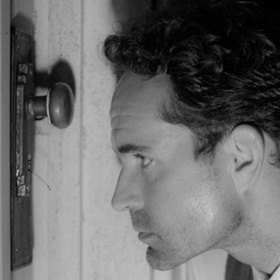Keyhole

3.5/5
If you’re familiar with Canadian filmmaker Guy Maddin’s body of work (The Saddest Music in the World, My Winnipeg, etc.) then it should come as no surprise that his new film is likewise a visual cacophony of brilliantly bizarre script accompanied by a surreal assortment of pretty images (think Man Ray meets Sigmund Freud at the Overlook Hotel). Unfortunately Keyhole lacks the patience, or potentially, the requisite time needed to bring such grandiose ideas to fruition.
Instead, we’re plunged, disoriented, into a cop and robbers chase—with double exposures and cross dissolves abound. Amidst a raging storm, the thunder cracking overhead and lightning brightening up the darkened rooms, we follow a gang of 1930’s style gangsters into what appears to be a boarded-up and abandoned house. An apparent allusion to Homers’ Odyssey, the film follows mob boss Ulysses Pick’s (Jason Patric) meandering quest to open all the locked doors in the house and reunite with his wife Hyacinth (Isabella Rossellini)—who just happens to have her “Father” stark naked and chained to her bed. Along for the ride is Denny (Brooke Palsson), a drowning girl who Ulysses has slopped in from the storm, and who continually complains of still feeling water in her lungs, as well as an unnamed, gagged hostage, tied to a chair.
Obviously, there are plenty of mysteries to be uncovered in Keyhole, which unlike many of Maddin’s other films, is more experimental and has an even looser fix on reality. Reality is stretched—ghosts linger in hallways, howling and moaning as if stuck on repeat, a penis is mounted on the wall gathering dust, and Ulysses’ lackeys set about re-wallpapering the rooms and building a bike-powered electric chair.
All these quirky touches may have some labeling Keyhole as a bit pretentious, or confusing for the sake of confusion. With definite echoes ringing from sources ranging from the likes of David Lynch’s Eraserhead to Samuel Beckett’s End Game, Keyhole provides just enough glimmer of genius to keep you guessing, and in turn watching. But if you find you are not a fan of puzzle piecing your film’s plot then you may find yourself cringing throughout much of Keyhole.
Despite any potential setbacks, the film leaves you with the feeling that you have just awoken from a terrifyingly vivid dream; one that lingers in your mind long after the credits roll and you’re lying in bed. In time, the film becomes its own creature, filled with extended metaphors and running symbolisms, that, though they may have initially been blurred by the occasional voiceover of Hyacinth’s naked father crying out “Remember, Ulysses! Remember Your Disease!” in the end demands the attention of the sleuth in us all.
And if the plot is too avant-garde for your taste, there is always Jason Patric’s compelling central performance to keep you grounded. His is often the one (apparently) normal mirror in the funhouse upon which you can focus your eye, and the actor imbues the role with surprising depth.
Keyhole is a dark look into a man’s psyche. It questions the ideas of death and memory, of loss and one man’s attempt to recapture something in a maddening Rubik cube of scenes, rooms, and characters, which although may have appeared disjointed at first ultimately have just enough underlying melody to carry the tune of (possible) brilliance.
RELATED ARTICLES
Get the most-revealing celebrity conversations with the uInterview podcast!







Leave a comment